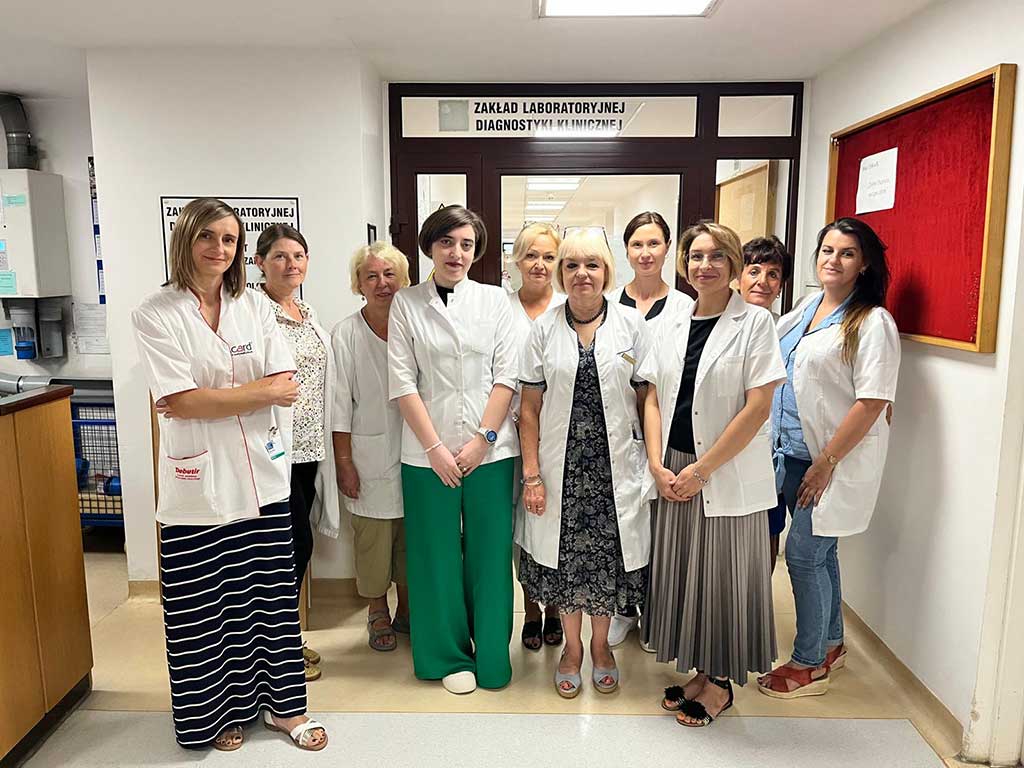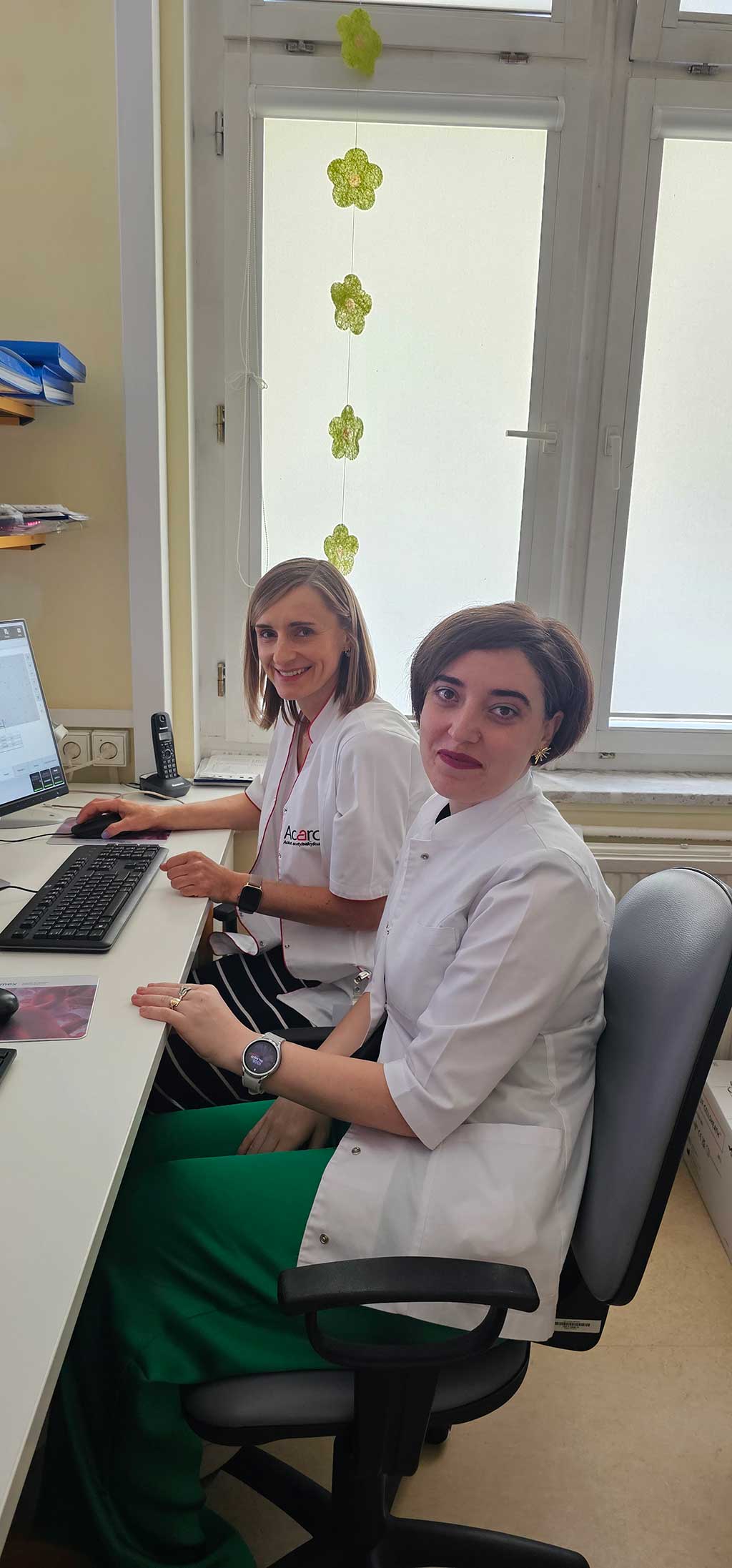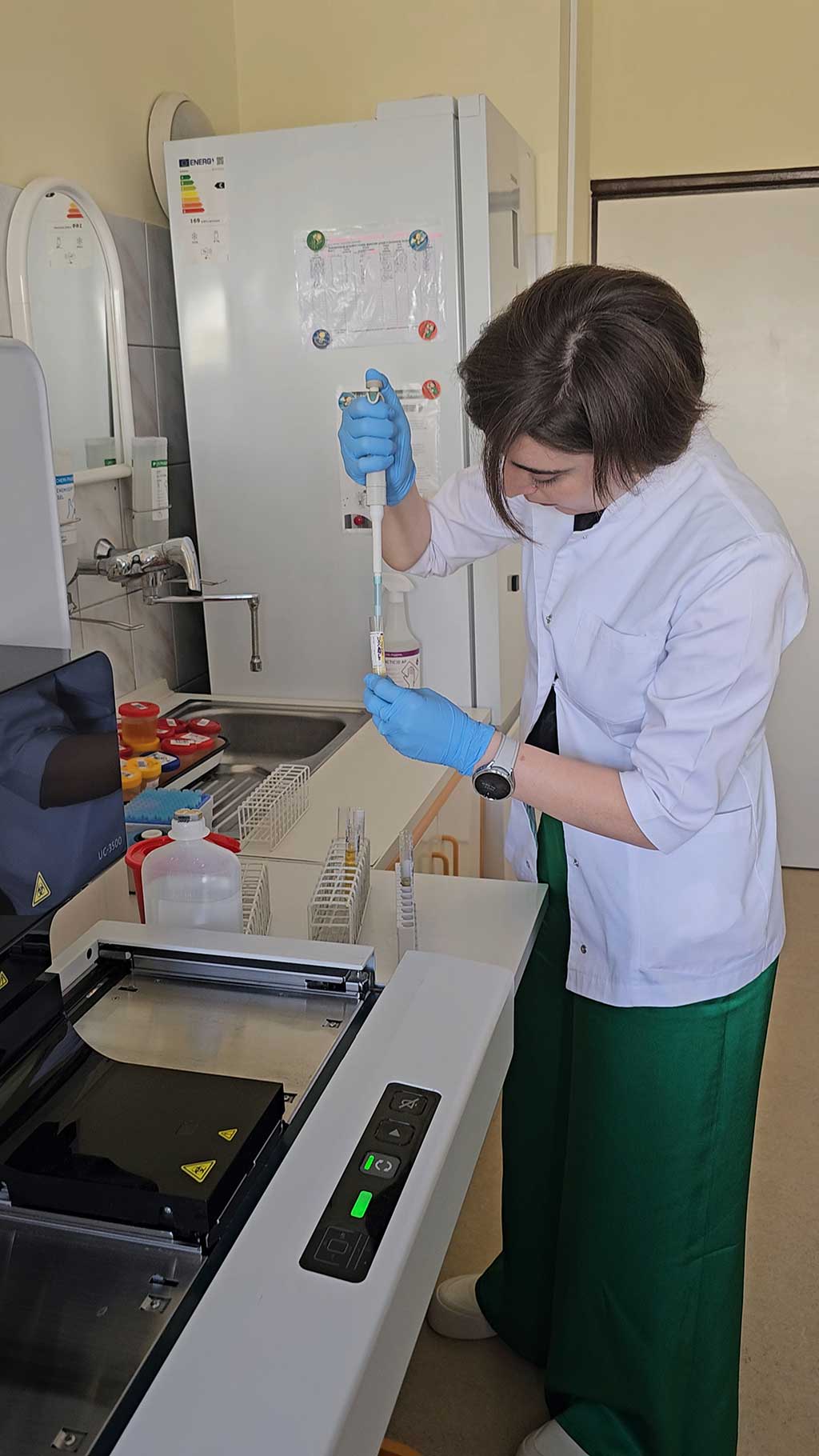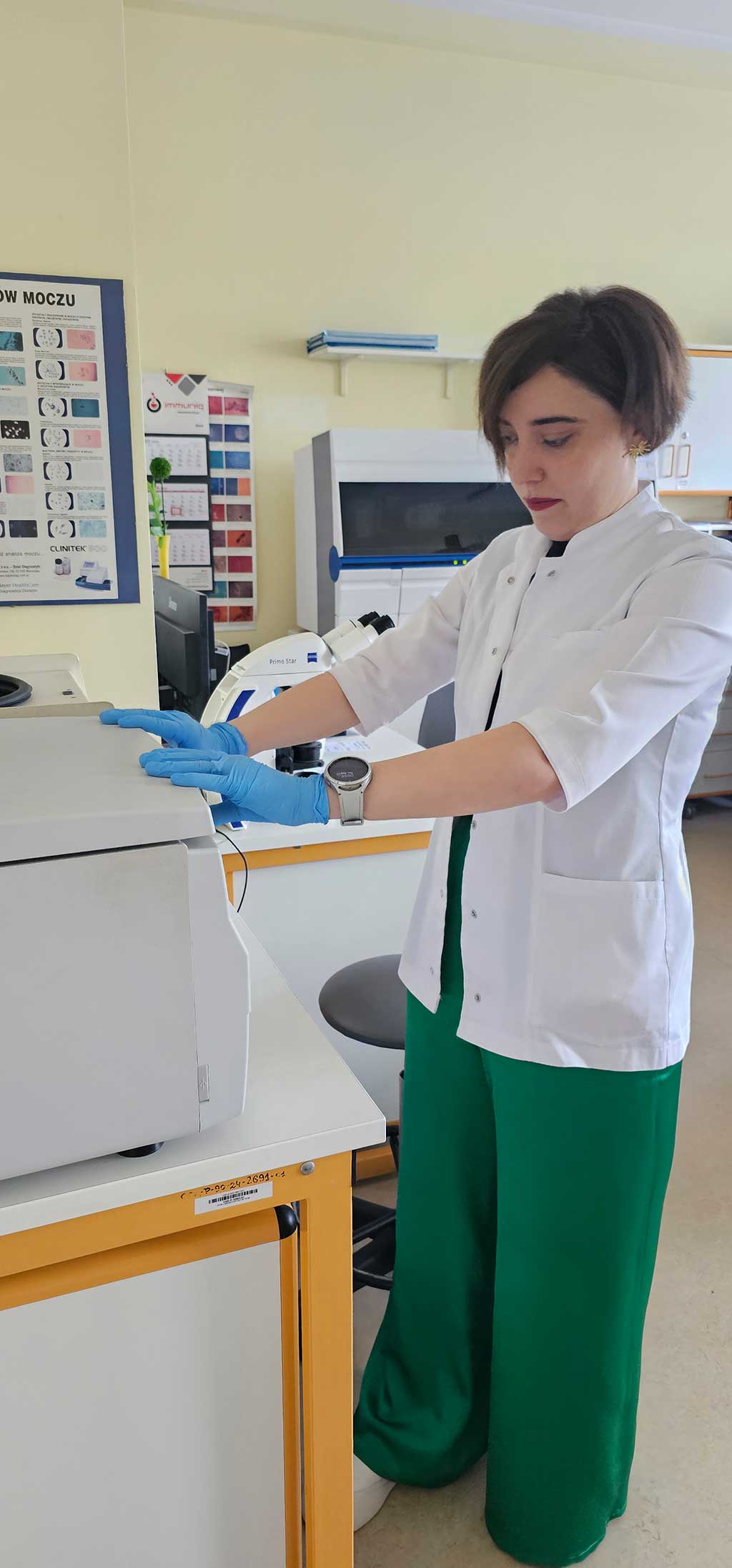EFLM LabX report by Nino Maziashvili
I am Nino Maziashvili a young scientist, MSc of biology and a member of the EFLM TG YS. I was honored to take part in the EFLM LabX program for a week, from 19th to 23th
August, I had the opportunity to visit the Department of Clinical Laboratory Diagnostics at the Medical University of Bialystok under the leadership of Professor Joanna Matowicka-Karna. The course was led by highly qualified and skilled practitioners, Assoc. Professor Olga M. Koper-Lenkiewicz and Assoc. Professor Joanna Kaminska. Professor Olga M. Koper-Lenkiewicz, head of the training, accepted my application and generously offered to visit her laboratory to exchange knowledge in the following fields: cerebrospinal fluid analysis, examination of body cavity fluids, synovial fluid analysis, urine diagnostics (which covers also cytological examination), and parasitic and immunoserological diagnostics.
For me, as a young researcher with several years of experience working in a molecular and clinical laboratory, this training was an opportunity to expand my knowledge. I actively work on scientific research and have published several articles. I have a strong interest in molecular research, clinical laboratory medicine and scientific research. I always try to learn new things in my profession. All members of this laboratory are experienced trainers who have conducted many courses for laboratory diagnostics. During the training, teaching was carried out both theoretically and practically. Olga and Joanna introduced me to their working environment, hardware, all the tests and approaches they use. Routine work, news, plans and scientific research they are working on. I was allowed to participate in the process and use the learned practice. We shared the experiences of our countries, advice and planned future goals. They were interested in the laboratories of my country, and I think it will be possible to visit them. The atmosphere at work was very friendly and inclusive, my colleagues never refused to offer a helping hand. They made it easy to integrate into their team.
I would like to express my special thanks to all my colleagues who were involved in this training and whom I met during this period. I am deeply grateful for every word, every resource, and professional and personal help available to me. I hope that in the near future I can use all that I have learned and contribute to the application of this technique in my country.
The EFLM LabX exchange program has significantly broadened my perspective as a young laboratory medicine professional for my future goals. Thanks to EFLM for this program which is a much needed opportunity for young scientists.
Special thanks to the Board of the Georgian Laboratory Medicine Association (GLMA) and the President Prof. Manana Akhvlediani and my mentor Prof. Maia Khutsishvili would not have been able to use this exchange without their support.
Also, I would like to thank Professor Tomris Ozben (EFLM President), the EFLM Professional Committee, the EFLM Office, and all those who contribute to the implementation of this and other important projects. Thank you for choosing me and giving me this scholarship opportunity to further my knowledge and experience. Dziękuję za wszystko.
Best wishes from Georgia
N. Maziashvili
I am Nino Maziashvili a young scientist, MSc of biology and a member of the EFLM TG YS. I was honored to take part in the EFLM LabX program for a week, from 19th to 23th
August, I had the opportunity to visit the Department of Clinical Laboratory Diagnostics at the Medical University of Bialystok under the leadership of Professor Joanna Matowicka-Karna. The course was led by highly qualified and skilled practitioners, Assoc. Professor Olga M. Koper-Lenkiewicz and Assoc. Professor Joanna Kaminska. Professor Olga M. Koper-Lenkiewicz, head of the training, accepted my application and generously offered to visit her laboratory to exchange knowledge in the following fields: cerebrospinal fluid analysis, examination of body cavity fluids, synovial fluid analysis, urine diagnostics (which covers also cytological examination), and parasitic and immunoserological diagnostics.





